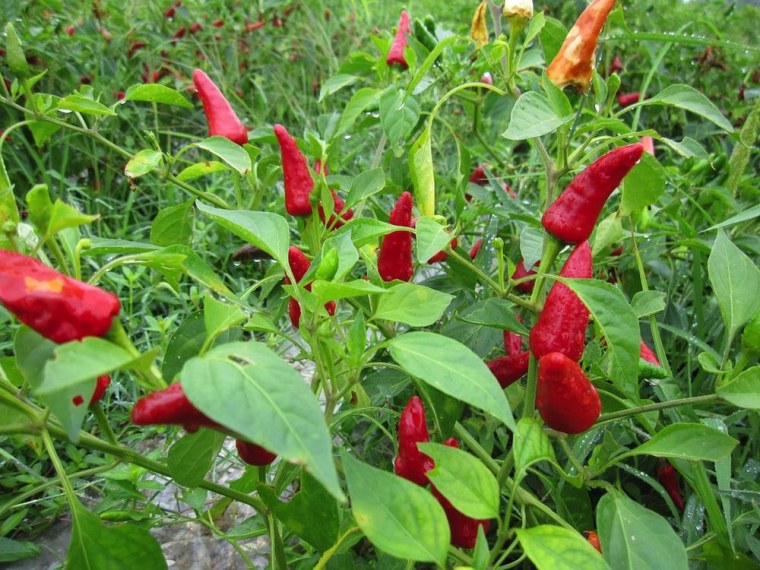Scientists have sequenced the genome of the pepper plant, revealing the genes responsible for pepper's spiciness.
The new genome, detailed Monday in the Proceedings of the National Academy of Sciences, could pave the way for even more mouth-numbingly hot peppers.
"The findings will provide foundation for further developing molecular makers and [incite] research on related pepper agronomy traits, and help breeders accelerate the research of new breeds by molecular biology techniques," said study co-author Cheng Qin, a researcher at Sichuan Agricultural University in China.
Peppers were first domesticated in South America as far back as 8,000 years ago. The pepper, which is part of a family that includes the tomato and the potato, spread from the New World after Columbus arrived in the Americas.
Chili peppers now come in a dizzying array of colors and flavors. In recent years, pepper aficionados have used old-fashioned breeding to amp up the heat-producing compound, called capsaicin, and create ever more insanely hot peppers. [Tip of the Tongue: The 7 (Other) Flavors We Can Taste]
Qin and his colleagues sequenced the genome of a pepper cultivated at their institution, known as Zunla-1, along with its wild counterpart. They found that the pepper diverged from tomatoes and potatoes about 36 million years ago.
Researchers also scanned the genomes of 18 cultivated peppers to compare differences between wild and cultivated varieties. They identified genes associated with how long the seeds stay dormant, resistance to pests and longer shelf life. They also found that a key gene can be duplicated a different number of times to produce more or less capsaicin.
Qin said the findings suggest that spicier peppers can be created either by identifying peppers with the right genes and cross-breeding them, or by genetically engineering the peppers to express more copies of the heat-producing genes.
— Tia Ghose, LiveScience
This is a condensed version of a report from LiveScience. Read the full report. Follow Tia Ghose on Twitter and Google+. Follow LiveScience on Twitter, Facebook and Google+.
